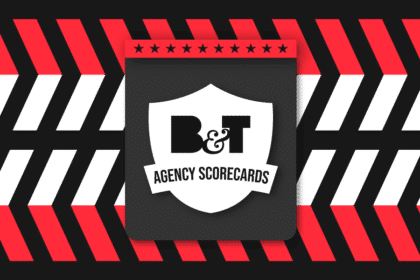The results of a Bastion survey commissioned by B&T have revealed that a significant majority of Australian parents support the government’s ban on social media access for children under the age of 16.
The proposed social media ban fuelled conversations in 2024 and at the end of November, the bill passed prohibiting children under the age of 16 from accessing social media platforms from the end of 2025. That means anyone under the age of 16 will be blocked from using platforms including TikTok, Instagram, Snapchat and Facebook, in an attempt to protect the mental health and wellbeing of young Australians.
According to the survey data, 68 per cent of parents favour the ban on social media for children under 16, with only 22 per cent opposing the idea. This support is slightly stronger among parents with younger children aged 0-9, emphasising a protective mindset among those with children not yet in their teenage years.
Parents with younger children are more likely to impose strict social media bans within their families, prioritising offline activities and controlled digital exposure. The belief in shielding children from the pressures of online presence during their formative years remains a consistent theme in the responses.
Beyond age-specific preferences, 70 per cent of Australians believe the government should play a regulatory role in social media, with slight variation based on children’s ages. This widespread agreement suggests a national consensus on the importance of stricter oversight to protect young users from harmful content and potential risks associated with early exposure to social platforms.
The survey also revealed notable gender differences in attitudes toward children’s social media use. Mothers expressed more concern than fathers, with 73 per cent of mothers prohibiting their children from using social media compared to 50 per cent of fathers.
Mothers with younger children were the most proactive in restricting access, while fathers tended to have a more balanced view, with half supporting and half opposing a ban.
Mental Health Concerns Drive Support for Social Media Ban
Parental concern over the mental health impact of social media emerged as a significant driver of support for a potential ban. The survey revealed that 57 per cent of parents agreed that banning social media could help reduce the adverse mental health effects young people face due to online exposure.
“Young children are being exposed to adult content, behaviours, and the worst of life well before they are mature enough,” one respondent stated, emphasising the psychological risks tied to early exposure.
However, 23 per cent opposed this stance, arguing that while a ban might be a step in the right direction, it alone cannot address the complex and long-standing mental health issues impacting younger generations.
“I don’t think the ban alone can achieve this — parental guidance, teaching, and discussion is also essential, as is school instruction on critical thinking,” one parent explained, highlighting the consensus for a multifaceted approach rather than a singular policy shift.
When asked to elaborate on their support for the ban, many parents cited mental health concerns as their primary motivation.
“Let kids be kids. Some adults cannot handle the pressure of social media, so why let kids deal with it?” one parent questioned.
Another echoed these sentiments, stating, “There is too much bullying and bad stuff on social media. Kids are not equipped to deal with it. Even adults have a hard time, and it can impact very badly on mental health.”
Some respondents expressed concern over the nature of content their children were exposed to while using social media platforms.
“I don’t feel OK when my daughter uses social media as she can see everything not related to her age,” one parent shared.
“Protecting children is a priority,” another respondent stated firmly, while another added, “Social media is a dark place. Children should not be exposed to it.”
Lack of Regulation and Enforcement Fuels Opposition
While many acknowledged the need for action, concerns over a lack of regulation and the challenges of enforcement were commonly cited among those opposing a social media ban. Critics questioned how effective a ban would be and whether it could realistically be implemented.
“Young people need to learn to navigate the online world safely. Rather than a ban, they need education and supervision,” one respondent suggested, advocating for a focus on digital literacy over restriction.
Another parent added, “Online bullying is an issue, but I can’t see this ban working.”
A frequently raised concern was that young people, driven by a desire for social connection, would likely find ways to bypass the ban, potentially exposing themselves to even less regulated and more harmful online platforms.
Others outright dismissed the idea as ineffective, with some calling the ban a “waste of money” that would censor an entire generation.
“Social media is social, by the people. Government regulation, or any form of censorship, takes away ownership from the people. Educate people on what is right and wrong. Invest in empowering them to make the right choices, rather than removing choices,” one respondent argued.
Another added, “The government should spend money on internet security instead of applying a ban that seems impossible to enforce.”
For some, the opposition was less about the ban’s effectiveness and more about broader national priorities. Many questioned whether the government should be focusing on more pressing issues rather than social media regulation.
With 2025 being an election year, it is safe to say that online regulation will continue to dominate political discourse as the year progresses. This data underscores a clear parental preference for stronger protections and proactive government involvement in managing children’s online exposure. With mental health concerns and online safety driving the conversation, it seems likely that policymakers will find substantial public backing for reforms aimed at protecting the youngest members of society from potential harm.








